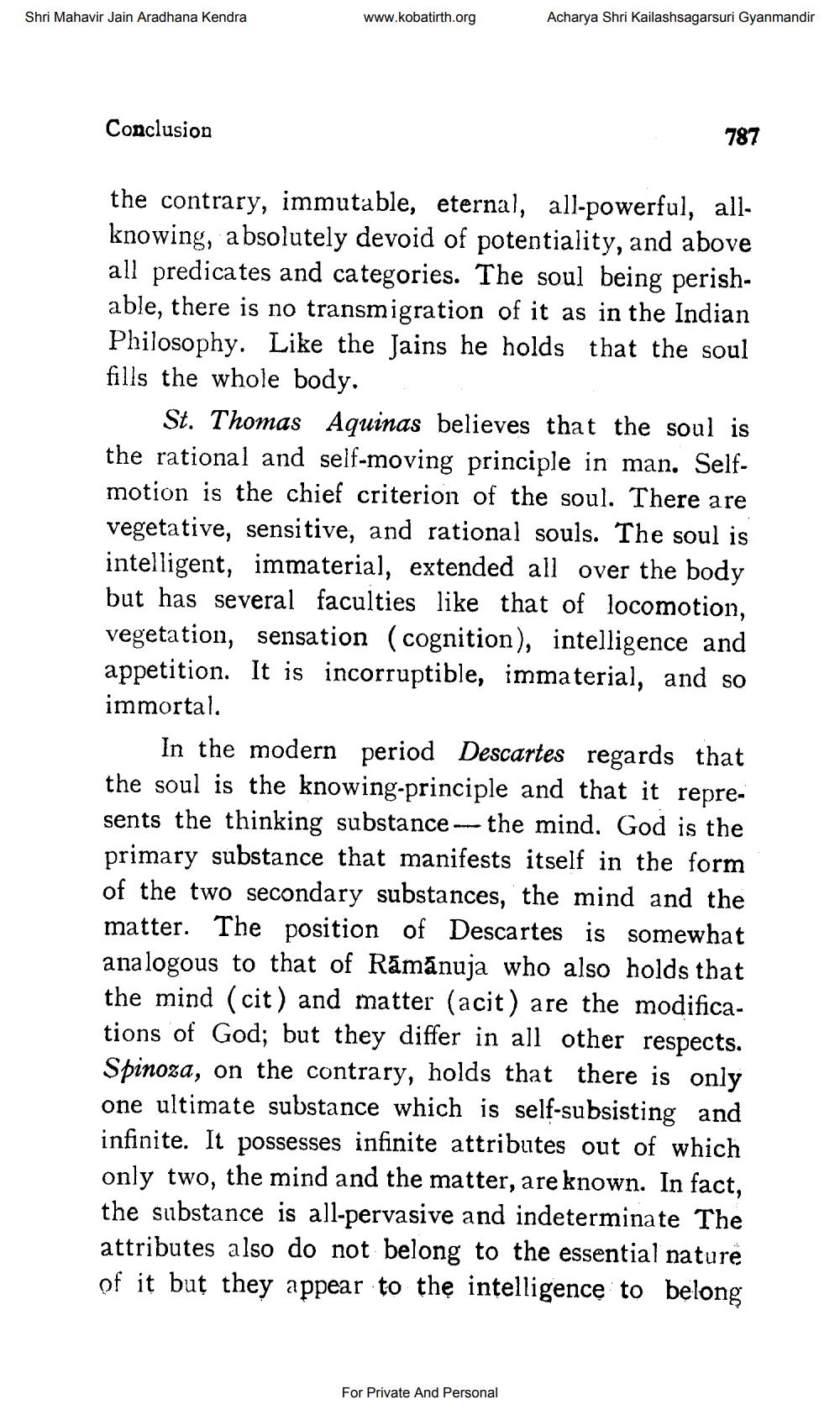________________
Shri Mahavir Jain Aradhana Kendra
Conclusion
www.kobatirth.org
Acharya Shri Kailashsagarsuri Gyanmandir
787
the contrary, immutable, eternal, all-powerful, allknowing, absolutely devoid of potentiality, and above all predicates and categories. The soul being perishable, there is no transmigration of it as in the Indian Philosophy. Like the Jains he holds that the soul fills the whole body.
St. Thomas Aquinas believes that the soul is the rational and self-moving principle in man. Selfmotion is the chief criterion of the soul. There are vegetative, sensitive, and rational souls. The soul is intelligent, immaterial, extended all over the body but has several faculties like that of locomotion, vegetation, sensation (cognition), intelligence and appetition. It is incorruptible, immaterial, and so immortal.
For Private And Personal
In the modern period Descartes regards that the soul is the knowing-principle and that it represents the thinking substance. the mind. God is the primary substance that manifests itself in the form of the two secondary substances, the mind and the matter. The position of Descartes is somewhat analogous to that of Rāmānuja who also holds that the mind (cit) and matter (acit) are the modifications of God; but they differ in all other respects. Spinoza, on the contrary, holds that there is only one ultimate substance which is self-subsisting and infinite. It possesses infinite attributes out of which only two, the mind and the matter, are known. In fact, the substance is all-pervasive and indeterminate The attributes also do not belong to the essential nature of it but they appear to the intelligence to belong




